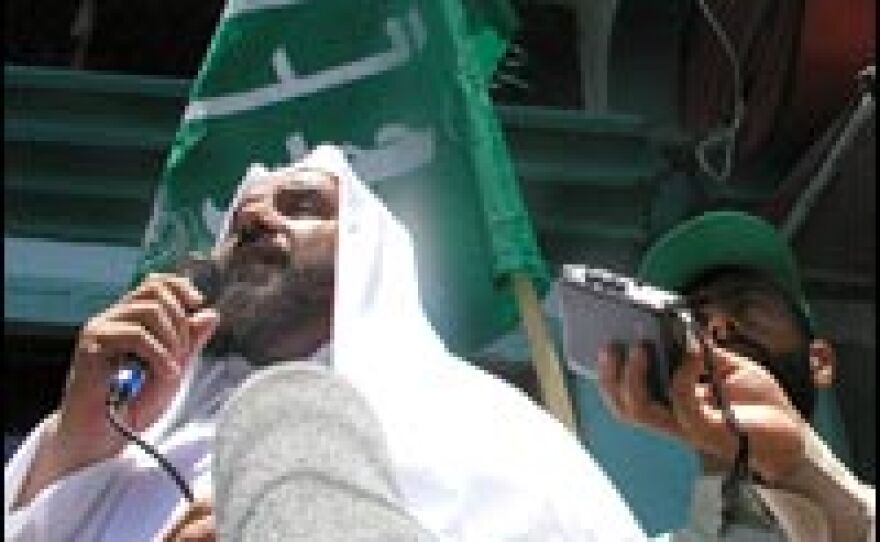
Israel's withdrawal from the Gaza Strip beginning next week will uproot some 8,000 Jewish settlers. The planned pullout has provoked deep divisions within Israel. Among Palestinians, the move brings much confusion and uncertainty about what the withdrawal will mean.
Some Jewish settlers vow to resist the withdrawal, saying it's against God's will to give up one inch of land to the Palestinians. And more than 1,000 supporters have infiltrated the settlements in recent weeks to bolster the ranks of those who will resist the pullout. Thousands more have protested in rallies and marches.
Rachelle Golan, a high school teacher from Jerusalem, brought her 10 children to Kfar Darom a month ago, to stand with the Gaza settlers. "I felt a responsibility to the future of Israel," Golan says. "It's a national calamity what's happening now."
The Gaza withdrawal is the policy of Israeli Prime Minister Ariel Sharon, who previously sided with the settler movement. Now he has come to believe that Israel's security will be better served by the removal of the settlers from Gaza and four isolated settlements in the West Bank.
The withdrawal policy has split Israel's right wing. Former Prime Minister Benjamin Netanyahu resigned from the government on Aug. 7, signaling his intention to run against Sharon for the leadership of the Likud Party. But opinion polls consistently put a majority of Israelis firmly in favor of the Gaza pullout.
For their part, Palestinian leaders refuse to credit the Israelis for the decision to leave.
In the street, intense hostility to Israel persists. A few days ago, Hamas, the militant Islamist movement that has much influence in Gaza, called a loud and boisterous demonstration. "They call us terrorists," said Nizar Rayyan, a local Hamas leader in Gaza. "They call us terrorists, but what about the Jewish terrorist who killed four Arabs last week? It's a crime and requires retaliation."
Although there have been sporadic Palestinian rocket attacks, for the most part the Palestinian armed factions have decided to let the withdrawal take place peacefully. But Israeli military leaders have said if there are attacks from the Palestinians, Israel wouldn't hesitate to use overwhelming force.
The evacuation won't immediately solve the many economic and political problems facing the Palestinians in Gaza. Israel is expected to keep the Gaza Strip sealed off from the rest of the world even after the pullout. And Israel will continue to control their water, electricity and food supplies.
Observers in Israel and Gaza see the withdrawal as a test of whether the Palestinians can run a state. Elections in Gaza have been postponed until January. That will be plenty of time to see what the true implications of Israel's withdrawal will be, both in Gaza and in Israel itself.
Copyright 2022 NPR. To see more, visit https://www.npr.org. 9(MDAzMjM2NDYzMDEyMzc1Njk5NjAxNzY3OQ001))







